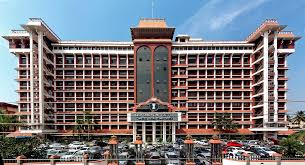Pranav Shukla
The Kerala High Court on 15 November 2024, has ruled that in a democratic nation where citizens have the fundamental right to practice and express their faith, the creation of a place of worship by any community cannot be restricted solely because of objections from other groups.
The Court’s ruling highlighted the constitutional right to practice and express one’s religion, emphasizing that the objections of a small group of individuals or organizations cannot justify limiting these rights. The bench comprising of Justice Mohammed Nias CP, in his judgment, noted that religious freedom is a core principle of India’s secular Constitution.
“In a democracy where citizens have the fundamental right to practice and express their faith, a community’s effort to establish a place of worship should not be hindered solely because of objections from other groups,” Justice Nias stated.
He also observed that objections from a single community cannot automatically be seen as a cause for communal discord or a threat to peace unless supported by solid evidence. The case involved KT Mujeeb, the petitioner, who had been using a property for prayer since 2004.
The Court further stressed that objections from a small number of individuals belonging to other faiths cannot be used as a basis to restrict constitutionally guaranteed rights. It also rejected the claim that the presence of other mosques in the vicinity was a valid reason to deny Mujeeb’s application.
Justice Nias clarified that this factor was irrelevant to the case, emphasizing that the petitioner’s right to religious freedom cannot be restricted simply because similar religious structures already exist nearby.
Based on these conclusions, the High Court overturned the local authorities’ orders and instructed the District Collector to re-evaluate Mujeeb’s application for permission to use the property as a prayer hall.
Case Name: KT Mujeeb v State of Kerala & ors
Case Number: W.P(C) No.13544/2020
Bench: Justice Mohammed Nias CP

